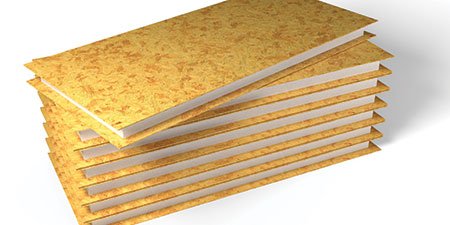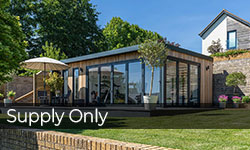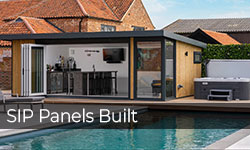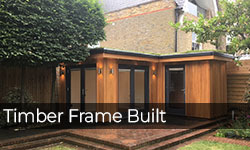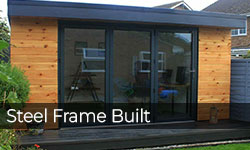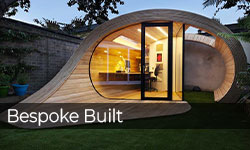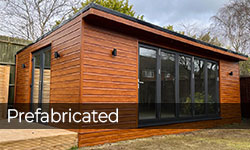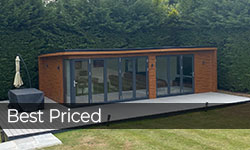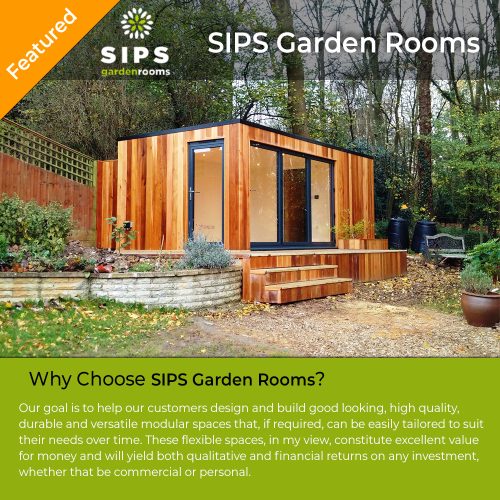
Structural insulated panels (SIPs)
Structural insulated panels (SIPs)
Structural Insulated Panels (SIPs) are quickly becoming a popular choice for garden room construction, replacing traditional timber frames. These panels are similar to those used in house construction, as seen on shows like Grand Designs. Garden room suppliers often source their SIPs from the same manufacturers as house builders.
SIPs are known for their fast installation and energy-efficient properties, making them a great option for garden room construction. They are also highly durable and can withstand extreme weather conditions. However, it’s important to consider that SIPs may be more expensive upfront compared to other materials.
Overall, SIPs offer a strong and efficient alternative to traditional timber frames in garden room construction, making them a worth considering for homeowners looking to add extra living space to their property.
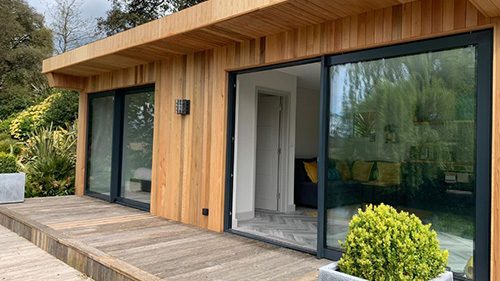
What are SIPs?
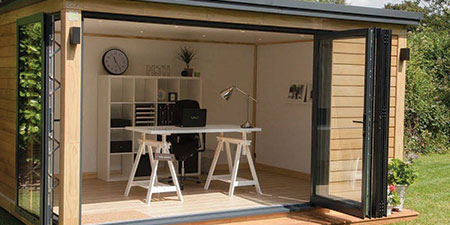
Structural insulated panels (SIPs) are a superior building system for residential and light commercial construction projects. These panels are made up of an insulating foam core that is sandwiched between two structural facings, typically oriented strand board (OSB). SIPs offer a range of benefits for builders and homeowners alike.
With new development in the industry, the options and types of SIPs are always advancing with sustainable and raw materials improving, from materials like bio-resin and fast growing natural fibers like hemp and flax.
One of the main advantages of SIPs is their energy-efficient properties. The core helps to reduce heat loss, resulting in lower energy bills and a more comfortable living environment. SIPs are also extremely strong and durable, able to withstand extreme weather conditions. They can be fabricated to fit nearly any building design, making them a versatile choice for a wide range of construction projects.
The introduction of Bio-SIP system is revolutionising the construction industry with eco-conscious and energy-saving building solutions, using sustainably sourced materials.
In addition to their performance benefits, SIPs are also cost-effective. They are manufactured under factory controlled conditions, which helps to reduce labor costs and ensure a high level of quality. Overall, SIPs offer a strong, energy-efficient, and cost-effective building system for residential and light commercial construction projects.
Exepectional R-Values
Structural insulated panels (SIPs) are known for their excellent insulation and airtightness, which helps to reduce energy costs over the lifetime of a building. SIPs are about 50% more energy-efficient than traditional timber framing and are well-suited for LEED and net-zero-ready building standards due to their minimal thermal bridging and excellent airtightness.
R-Values
Structural insulated panels (SIPs) are known for their excellent insulation and airtightness, which helps to reduce energy costs over the lifetime of a building. SIPs are about 50% more energy-efficient than traditional timber framing and are well-suited for LEED and net-zero-ready building standards due to their minimal thermal bridging and excellent airtightness.
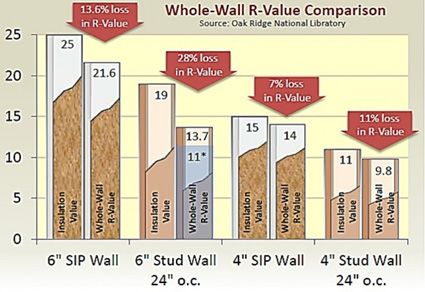
Healthier Indoor Air Quality
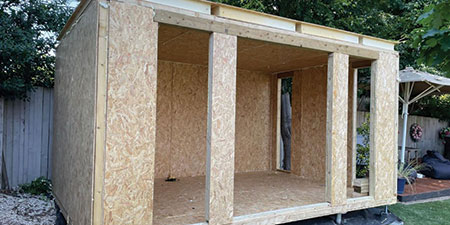
A SIP home or commercial building allows better control over indoor air quality because the airtight building envelope limits incoming air to controlled ventilation which filters out contaminants and allergens. The SIP envelope doesn’t have the voids or thermal bridging of conventional stick framing that can cause condensation leading to potentially hazardous mould, mildew or rot.
Indoor Air Quality
A SIP home or commercial building allows for better control over indoor air quality because the airtight building envelope limits incoming air to controlled ventilation. Controlled ventilation filters out contaminants and allergens, and also allows for incoming air to be dehumidified, reducing the possibility for mold growth. This ventilation system is especially important in regions experiencing seasonal wildfire smoke as well as high precipitation, humid climates.
There are a variety of ventilation strategies that can be employed to provide fresh air to airtight homes. These vary by climate, but most are relatively inexpensive and operate on automatic control systems without the need for homeowner action.
Sustainability Credentials
SIPs are highly energy-efficient and therefore contribute positively to the environment by reducing CO2 levels. They also use significantly less energy during the manufacturing process compared to traditional construction methods and have lower embodied energy than traditional construction materials, such as steel, concrete and masonry.
SIPs Sustainability
Structural insulated panels are one of the most environmentally responsible building systems available. A SIP building envelope provides continuous insulation, is extremely airtight, allows for better control over indoor air quality, reduces construction waste, and helps save natural resources. Life cycle analysis has shown that SIP homes have a tremendous positive environmental impact by reducing energy use and greenhouse gas emissions throughout the home’s life cycle.
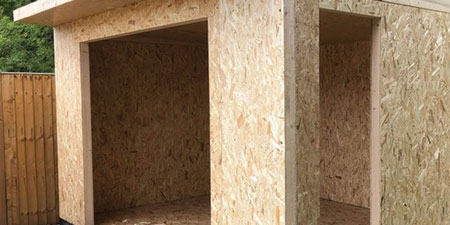
Faster Construction With Less Labour
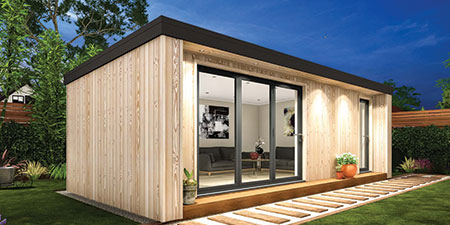
SIP walls and roofs are designed and precisely manufactured offsite. This allows the building to be assembled onsite quickly and made watertight in a matter of days. This reduces costs such as project management, scaffolding, framing labour and much more. A BASF time-motion study confirmed that SIP panels reduce jobsite labour needs by 55%.
The Proof is In The Savings
The SIPs True Value Bidding Tool helps demonstrate the added value of a SIP project with every lead that your business encounters. It’s an easy and free way to elaborate on the additional value included in a SIP structure that conveys more than energy performance – it demonstrates the true cost associated with project and the real savings in choosing SIPs.
SIPs Insulation
Structural insulated panels (SIPs) are a cost-effective and energy-efficient building system that offers a faster, more innovative construction method compared to traditional building methods. The benefits of SIP construction include high-quality construction and an environmentally-friendly solution.
The lightweight structure of SIPs reduces carbon emissions during transportation, footings, and construction. Its thermal efficiency also reduces carbon emissions over the lifetime of the building. The recyclable insulation, low-waste off-site manufacturing, and construction process make SIP construction highly efficient from start to finish.
The adoption of SIP construction techniques will be crucial in decarbonizing the built environment and achieving net zero by 2050, as outlined at COP26. If you’re looking to build a more sustainable and energy-efficient home or commercial building, consider using SIPs.
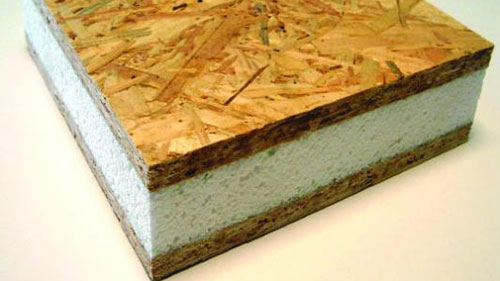
High Structural Performance
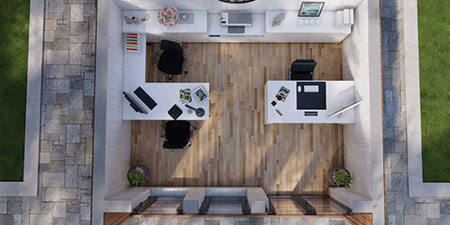
Structural Insulated Panels (SIPs) offer superior structural performance, strength, and stability compared to traditional construction methods. They are versatile and flexible, able to withstand extreme weather and climate conditions, and are stronger and less prone to shifting than timber framing. In addition, SIPs do not degrade or deteriorate over time and have been found to be up to five times stronger than timber frame construction. Our SIP wall and roof systems have undergone thorough testing by independent building materials and technology experts to British Standard design loads, ensuring their quality and durability.
Lightweight Prefabricated Structure
In addition to their strength, SIPs construction is a lightweight system which can bring several benefits during the construction process. The lightweight nature of SIPs allows for low impact footings (where ground conditions permit), which can minimize disruption on site and reduce the need for labor. This can be especially useful for sites with access challenges or smaller sites. The lightweight structure of SIPs also helps to reduce carbon emissions during transportation and construction. Furthermore, SIP panels are highly versatile and can be combined with a range of other building materials, such as stone, wood, brick, block, tiles, slate, steel, and glass, allowing for a high degree of design flexibility.
